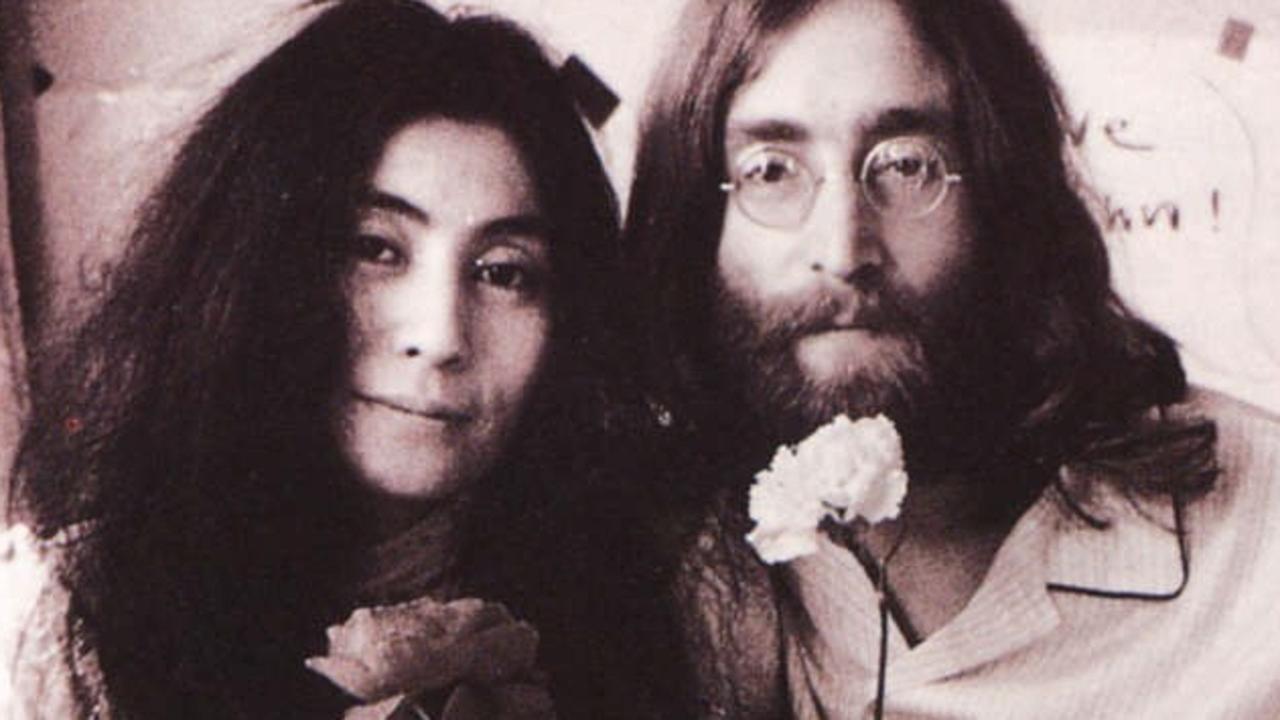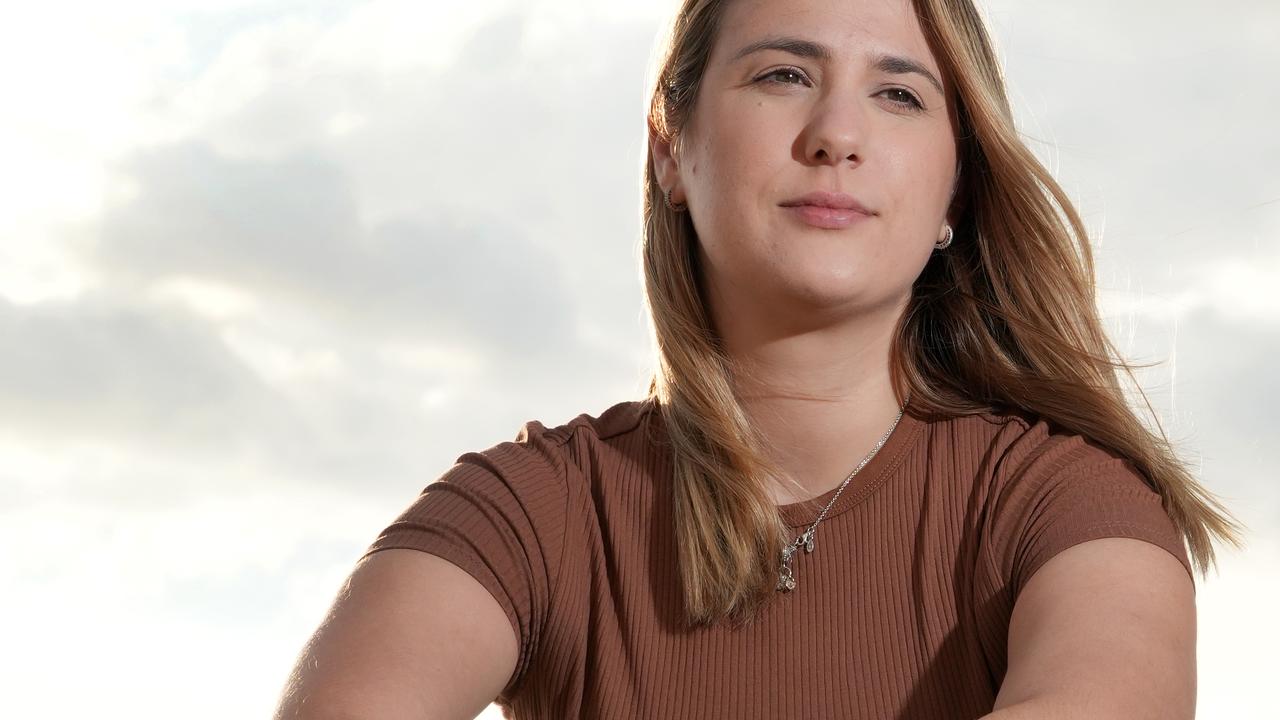Special assistance schools SASY, Youth Inc and Compass Catholic thrive as more young people seek different ways of learning during Covid-19
No uniforms, flexible hours and a focus on project work rather than subjects – these are the alternative schools in SA that are experiencing a new wave of interest.
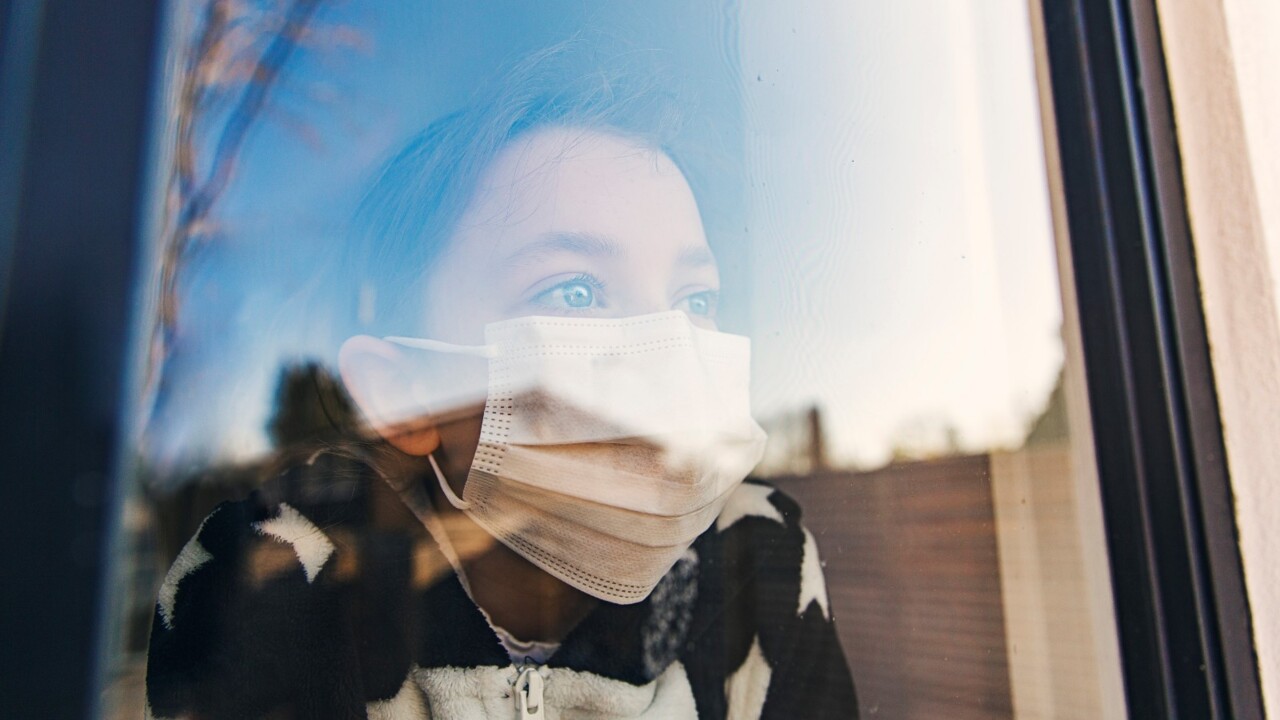
SA Weekend
Don't miss out on the headlines from SA Weekend. Followed categories will be added to My News.
When Ash Krause was in his early teenage years, he regularly walked out of classes, swore at teachers and had “violent outbursts” at school.
“Me and my mum argued a lot,” the now 17-year-old says, and “things got pretty out of hand.”
In 2016 he found the Specialised Assistance School for Youth, which is among a series of private alternative school campuses across Adelaide helping disengaged young people find a new interest in learning.
“I still had bad bouts of arguing and walking out, but I got to come into an environment where I didn’t feel pressured,” Ash says.
He makes no secret of his pleasure at leaving his previous school experience behind.
“The teachers here are trying to help you, not just teach you,” he says.
“People ask you here, ‘Are you OK, how’s your day been?’. It’s nothing like a normal school, where they just want you to work. They care more about you being healthy and happy before you even cover that.”
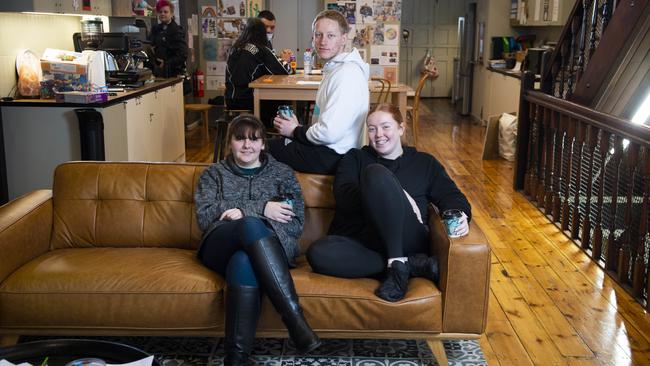
Ash is part of a cohort of about 200 students at the school based in the Chesser Street laneway in town – a campus with a street frontage that at first glance, looks like a small Adelaide-based business.
Stepping just beyond its doors, the school’s inside appearance is also very different.
In communal areas similar to a home’s living and dining rooms, young people sit on couches reading; also occupying tall bar-style tables as they work on their laptops.
The rooms are coloured with artwork, board games, infusers and a large coffee machine and kitchen where they can prepare their own food and hot drinks.
Specialised Assistance School for Youth, or SASY, as it’s commonly known, is now at capacity, having grown from 160 students aged 13-25 last year.
And it’s among schools seeing an increase in demand from students eager to get out of traditional classrooms – with extra interest partly driven by the pandemic. Ash says along with its different approach to teaching, the school has helped by connecting him with external programs that have turned his life around.
He excitedly shares his experience with Ice Factor – an ice hockey organisation that’s allowed him to forge new friendships and find an interest in exercising and eating well – as being a huge boost for his mental health.
“I used to be pretty depressed and wouldn’t leave the house. I was in a pretty dark place,” he says.
“Now I’m in a routine and I have a job. The hard work of getting up and doing something has paid off.”
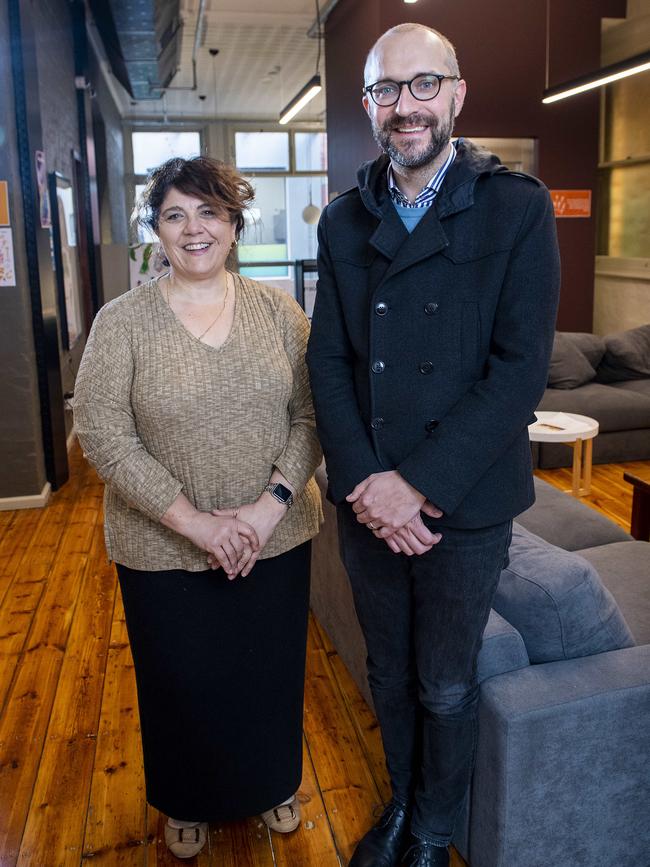
At special assistance schools, there are nouniforms, there’s a much lower ratio of students to staff and students focus more on project work than specific subjects.
SASY chief executive David Wild says for some students who were already disengaged from learning, the pandemic presented “one barrier too many”.
“Kids who were already on the edge have been impacted by Covid to stay home,” he says, adding some worried it was too difficult to make up lost ground following periods of remote learning, or were concerned they would catch the virus at school.
“We’ve essentially doubled in size as a school in two years. Our inquiries have tripled,” he says.
When SA Weekend visits the site, maths teacher Jade Bester is near finishing her class, and has just a couple of students remaining after several others called it a day.
She says teachers take a flexible approach to attendance.
“If they’re going to engage for 5–10 minutes, that’s better than no minutes at all,” she says.
“We have some students who want to smash out a lot of work, which is fantastic, and others who go bit by bit.”
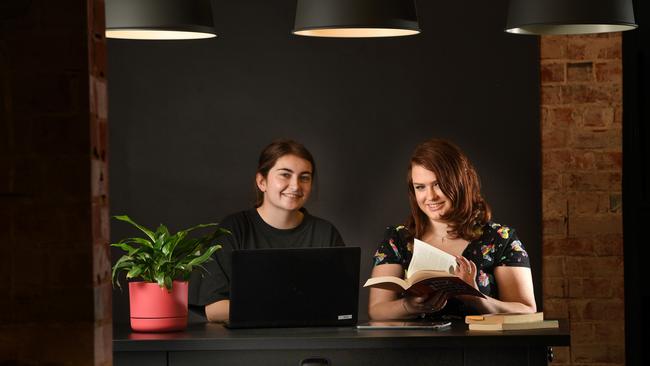
Youth Inc, based on Hindley Street, is experiencing a similar surge in popularity.
It’s expecting 120 students in July, compared with the 90 it taught the same time last year.
At schools like Youth Inc, students are still studying to receive their SACE or VET qualifications.
“(But) it’s a much more holistic approach to enable young people to identify their capabilities and create a sense of direction,” says Fred Heidt, the school’s executive principal.
“Most of our young people want to find connection – a lot are very socially isolated.
“In a lot of cases, they’ve done up to 13 years of schooling and still don’t know what they want to do.”
A history of mental illness, disadvantage, gender identity issues, or a lack of adult support is common among the cohort, Mr Heidt says.
“They’re not all Gang of 49, fully pierced and tattooed – they’re just young people who have a different kind of identity.”
The school leader says despite the growing popularity of specialised assistance schools, Youth Inc doesn’t have a mind to expand much further.

“We still want to offer a very small-scale, micro-school setting,” he says.
“It’s important for young people with complex learning needs that they’re not in a school of 700 students.
“Some come to us with very limited secondary school engagement and others may have partially completed SACE but for reasons that are many and varied, drop out of school.”
Mr Heidt agrees the pandemic has also directed more students to schools like his.
“For a proportion of young people, online learning is not their preferred medium,” he says.
“A lot of young people, especially those who have disengaged from learning for a long time, have really hankered for some social contact.”
Naomi Sieben, 20, dropped out of year 12 after her family had a car accident during a holiday, and she missed out on a series of classes.
“When I got back to school, I was way behind, and the principal told me there was no way I was going to pass,” she says.
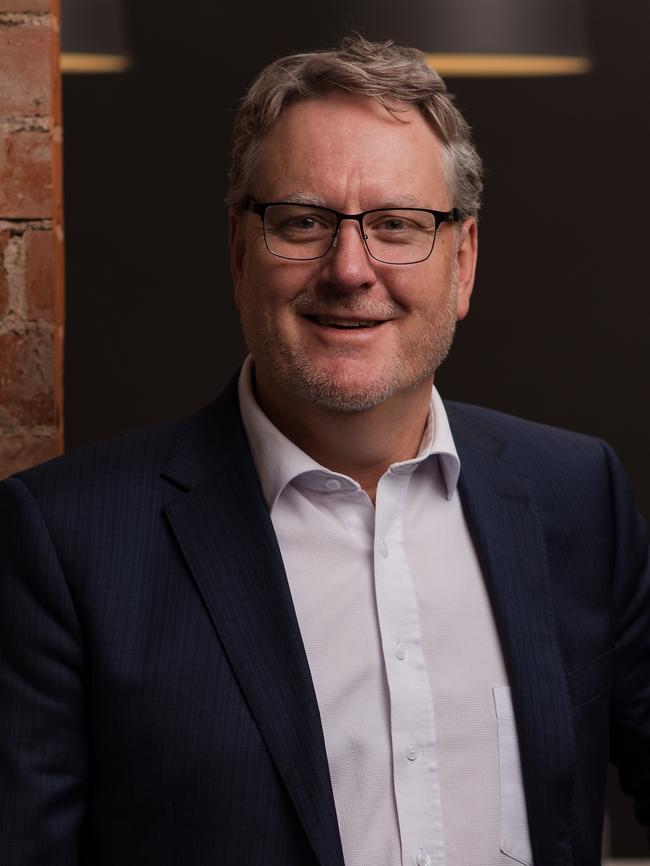
She enrolled in a music course but the pandemic threw her a curve ball, limiting group members’ abilities to attend activities.
Ms Sieben found Youth Inc in July 2021, and now has plans to study a Bachelor of Music and become a music teacher, alongside pursuing her own gigs and photography work.
Friend Brianna Williamson, also 20, says she linked up with Youth Inc after graduating from year 12 in 2020.
She had planned to travel overseas during a gap year, but the pandemic stopped her in her tracks and she felt lost about where to head next.
Youth Inc’s programs introduced her to the idea of working in outdoor education, which she now hopes to pursue as a career.
“I had no idea it even existed,” she said about her new pursuit.
“I just hoped Youth Inc would give me something to do. But it’s turned out a lot better than I thought it ever could have been.”
Noticing the demand for a different style of learning, Catholic Education SA this year opened its new specialised assistance school, Compass Catholic Community.
Principal Kelly Bunyon says she’s “thrilled” enrolments have exceeded her expectations, with 57 students joining classes.
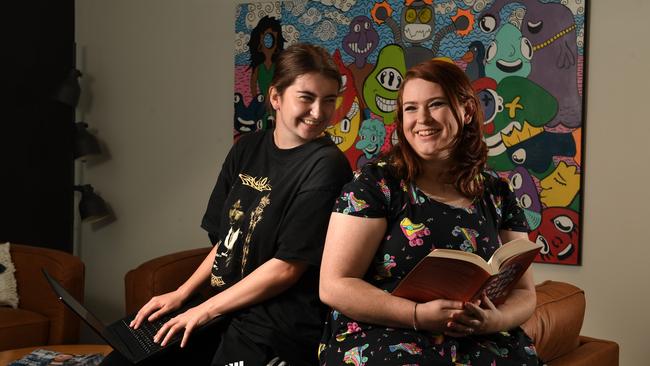
The site, based at the former Davoren Park Primary School, also aims to ensure being a young mum or dad isn’t a barrier to students completing their learning.
There are already five children in the school’s childminding service, and a new building on the way will help staff look after up to 20 children while their parents study.
Mental illness, homelessness, and the need to care for their parents are among the reasons some students struggled to fit in with the traditional school system, Ms Bunyon says.
But Covid-19 made it worse, presenting a hurdle for those without the necessary technology or space for regular home-based learning.
“Some of the setups supposed that each child in a house would have a computer that would have Wi-Fi and handle the load in the house, and would have their own space to do study, and that’s just not the case for every young person,” Ms Bunyon says.
“And it’s hard to go back if you have been away for a while.”
The school has one staff member for every 12 students and a social worker for every 20.
Ms Bunyon says schools like hers are reducing the number of young people who don’t succeed in mainstream schooling and then struggle to find work.
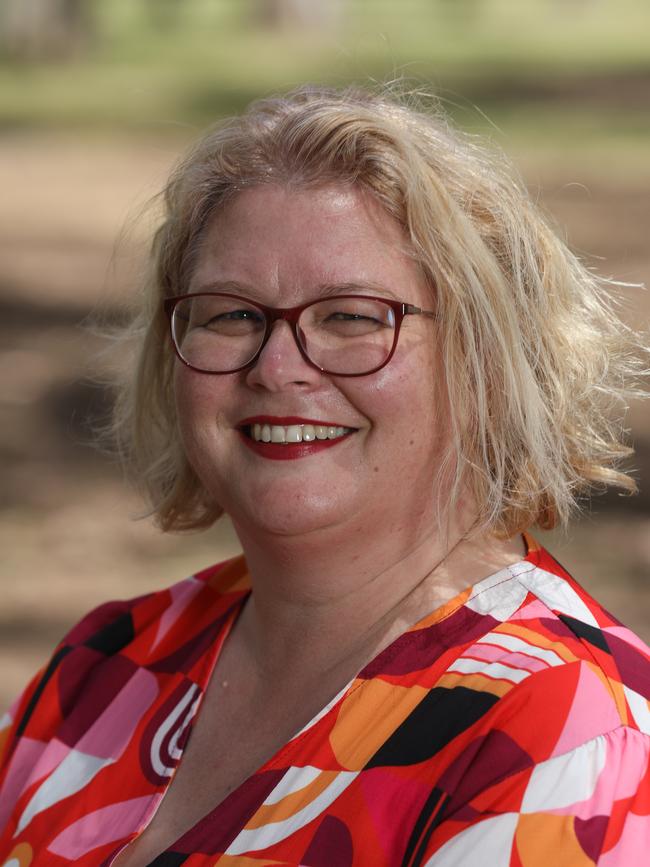
She says Compass set up at Davoren Park to target students in the northern suburbs, in the hope it would encourage more people to reconsider returning to school.
“Having a constellation of options for young people to complete their schooling can only be a good thing,” she says.
In Elizabeth, Indie School and Edmund Rice Flexi School are also helping disengaged young people, along with FAME (Flexible Accredited Meaningful Engagement) in Christie Downs.
The success of such independent schools comes at a time when the future of the government’s Flexible Learning Options (FLO) program – supporting disengaged young people – is in the midst of upheaval.
Reviews have found the program helped improve retention but had disappointing academic results, and the previous state government committed to major reforms.
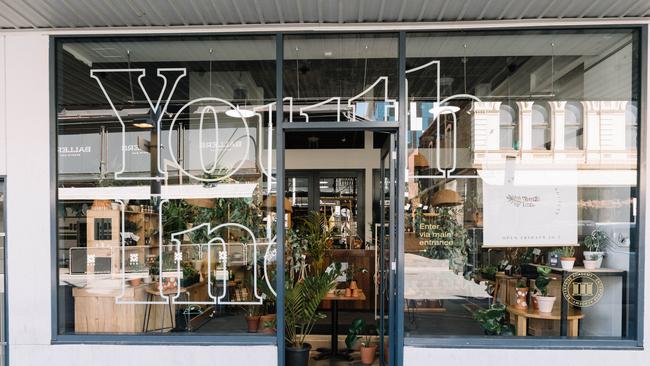
The Education Department is now working to redesign FLO from 2023, with “full implementation” of the new system in 2024.
Consultation on the recommended features of the new system will start from August this year. There are 3756 students in the program, mostly in years 10-12, down slightly on last year’s 3862 enrolments.
In 2021, a report by Flinders University education academics Andrew Bills and Nigel Howard made a series of recommendations on how to better support disengaged students.
These included better collaboration between school sectors, more support for special assistance schools and clarity on the future of the FLO program.
An Education Department spokeswoman said the program’s redesign intended to ensure young people vulnerable to disengaging were well supported.
She said the department was consulting with non-government organisation partners, young people, families and education experts as part of the changes.
Pagan Goodwin, 22, is among a cohort of young people who “never showed up” at her previous public school.
“I felt I had more important shit to do, and it didn’t really matter,” she says of her early high school years.
“There were bigger things to worry about. I got to about the first term of year 9 before they got sick of my shit.” Then, about eight years ago a case worker connected Ms Goodwin with SASY.
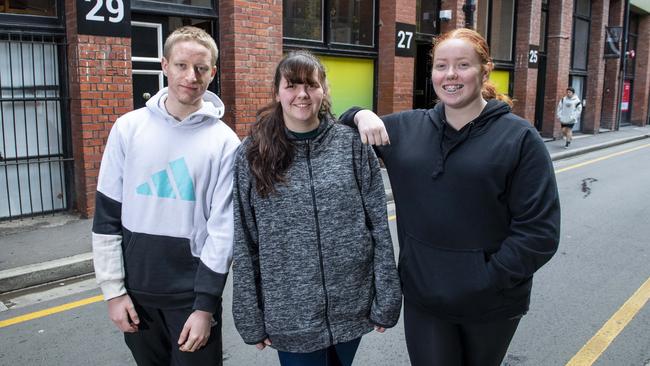
When she first walked through the door, she thought the school was “another place I wasn’t going”. But Ms Goodwin says she actually attended much more often knowing she was free to leave whenever she wanted – and the staff have put more time into helping her succeed.
“If you start off (at mainstream schools) as that kid that doesn’t turn up, no-one really tries. I was always that kid and no-one really put a lot of effort into it … (but) here they do,” she says.
“They’ll look at why you don’t want to be here and maybe get you into something you’re interested in or look into the issues of why you might not be here.”
Now, Ms Goodwin is working towards a certificate in youth work.
Ms Goodwin, Mr Krause and fellow student Tiffany Borlase, 16, agree SASY feels like an extended family.
Ms Borlase was dealing with personal struggles including mental health problems during years 8 and 9, which led to her often being absent from school, then falling behind.
She has welcomed the different culture at Chesser Street, where there is much less differentiation between teachers and students, and students are just treated “as people”.
“I’ve been to two mainstream schools and they were very much like, ‘This is how you do it’ but here, if you’re struggling with something for a particular reason, it can be modified in a way that works for you.”




